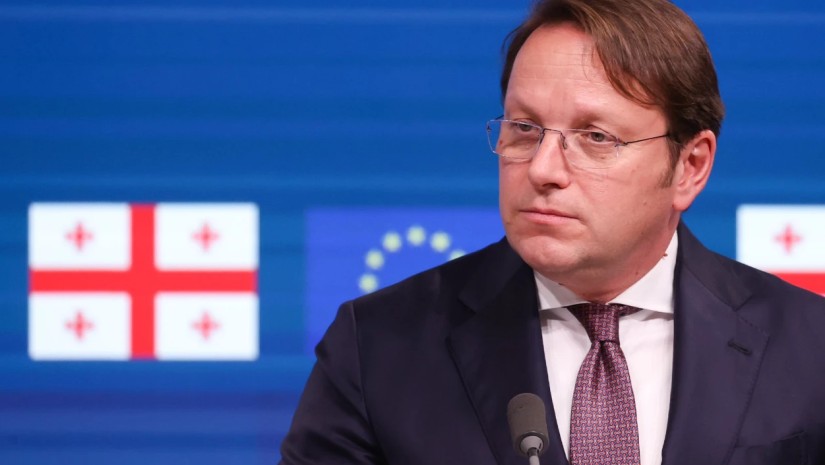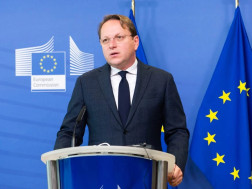Olivér Várhelyi, European Commissioner for Neighbourhood and Enlargement, says the EU “remains committed to further deepening the partnership with Georgia in hope that Georgia addresses outstanding concerns and key reforms so that the Commission will be in a position to consider moving back to the EU path.”
EU Commissioner noted that “Georgia made minor progress on implementing the nine steps and backslid on some of them.”
“As a consequence of the European Council’s decision, Georgia’s accession process has de facto been halted. It is crucial for Georgia to reverse course. In particular, we expect Georgia to repeal controversial laws undermining fundamental rights in the country and make substantial efforts to address the nine steps, which remain valid,” he continued.
“On December 2023, the European Council granted candidate status to Georgia. However, following the course of action taken by the Georgian government since, the EU accession process has been de facto halted.
Moving to Georgia – granting the candidate status in 2023 has not been followed by sufficient political commitment from the authorities to implement the necessary reforms for the country’s progress on the path. Significant negative developments, including the adoption of the law on transparency of foreign influence and other laws undermining fundamental rights, as well as narratives from Georgian officials, have severely jeopardized Georgia’s European trajectory.
On October 26th, Georgian citizens voted in the parliamentary elections. The preliminary findings of the joint international election observation mission led by the OSCE/ODIHR identified several shortcomings that occurred in a tense and highly polarized environment. These preliminary findings confirmed the need for a comprehensive electoral reform that was already highlighted in past key recommendations,” he stated.























